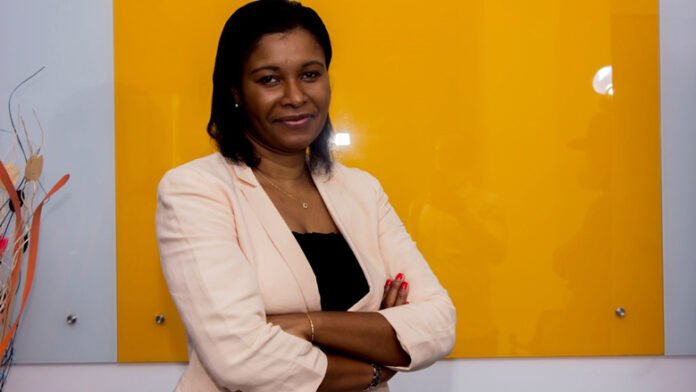Challenge: Financial Exclusion in Côte d’Ivoire
In Côte d’Ivoire, a significant portion of the population, particularly individuals and small businesses, faces financial exclusion. Access to finance remains a formidable challenge, with women disproportionately affected. Despite advancements in mobile money, which have helped bridge some gaps, the 2017 Global Findex database revealed that only 41% of Ivoirians had access to financial services. This statistic underscores the urgent need for inclusive financial solutions.
The landscape is dotted with 37 Fintech initiatives, yet many struggle due to a lack of funding, insufficient business and digital skills, and an unclear regulatory environment. Three primary challenges hinder Côte d’Ivoire from fully leveraging its digital economy: limited digital inclusion in rural areas, inadequate policy and regulation, and financing gaps for private sector development.
Approach: Assessing Constraints to Fintech Development
To tackle these challenges, a comprehensive study was conducted through desk research, questionnaires, and interviews. The focus was on identifying constraints to Fintech development and proposing strategies to enhance digital financial inclusion for marginalized groups, particularly poor households and micro-entrepreneurs, including women.
The study emphasized the importance of a robust legal and policy framework, improved financial and telecommunications infrastructure, and a conducive business environment for Fintech startups. This analytical groundwork culminated in a multi-stakeholder workshop held on October 21-22, 2021. The workshop aimed to foster an enabling environment for Fintechs and boost financial inclusion, resulting in a Roadmap for 2022-2024 to enhance the Fintech sector in Côte d’Ivoire.
Results: Uncovering Potential and Capacity Needs
The findings of the study illuminated the potential for a new generation of financial service providers in Côte d’Ivoire. It also highlighted the capacity-building needs of existing Fintech companies. Over time, fostering a supportive environment is expected to catalyze private sector-led growth and human capital development.
Building on these insights, the Agency for Financial Inclusion (APIF) initiated concrete actions, including stakeholder workshops and contributions to future regulations. These efforts aim to help Fintech companies access markets and finance by enhancing marketing strategies and strengthening business skills.
A striking revelation from the study was the gender gap within the Fintech sector: only 2 out of the 37 Fintech companies were led by women. Additionally, most companies operate in urban areas, leaving rural populations underserved. The findings prompted several recommendations to address both gender and urban-rural disparities in access to digital financial services. The action plan includes commitments to increase women’s engagement with technology-based financial products, integrate financial education into literacy curricula for women, raise awareness in rural communities about Fintech services, and support the establishment of incubators in each district.
Bank Group Contribution: Supporting Economic Transformation
This study was conducted under the Côte d’Ivoire Jobs and Economic Transformation Project, approved in June 2021. The collaboration between the Bank team and the Agence Française de Développement (AFD) was crucial in leveraging funding for the Agency for Financial Inclusion. AFD also played a pivotal role in providing a technical review of the study, ensuring its relevance and applicability.
Looking Ahead: Implementing the Roadmap
The Government of Côte d’Ivoire is set to implement the 2022-2024 Roadmap to Improve Fintech, incorporating major recommendations from the World Bank study. This includes actions aimed at enhancing alternative finance, promoting women-led Fintechs, and designing gender-focused financial products. The Roadmap is anticipated to contribute to ongoing efforts to revise the enabling environment for Fintech within the West African Economic and Monetary Union (WAEMU).
Led by the Central Bank of West African States (BCEAO), these initiatives include the establishment of a national innovation lab. Furthermore, the Roadmap outlines measures to build the capacity of Fintech business owners and strengthen support organizations, such as incubators. The Bank team has also shared the report with regulators in Madagascar and Nigeria, both of which have expressed interest in similar studies using the same methodology. The Central Bank of Madagascar is set to host its inaugural Fintech workshop on June 17, 2022, facilitated by the joint support of the World Bank and the International Finance Corporation (IFC).
Beneficiary Story: Voices from the Ground
Nadine Ebelle Kotto, Chief Executive Officer of MQash, a Fintech specializing in innovative payment solutions, shared her experience: “As a female entrepreneur, I was pleased to have the opportunity to be part of the Regulatory Committee established by the Côte d’Ivoire Agency for Financial Inclusion (APIF) under this World Bank-supported initiative. The APIF is the first public institution to allow Fintechs in Côte d’Ivoire to have a voice. This initiative gathered key players of the financial services ecosystem, which jointly worked on a roadmap for Fintech development to accelerate innovation and financial access.”
This narrative encapsulates the transformative potential of collaborative efforts in addressing financial exclusion and fostering a more inclusive digital economy in Côte d’Ivoire.

